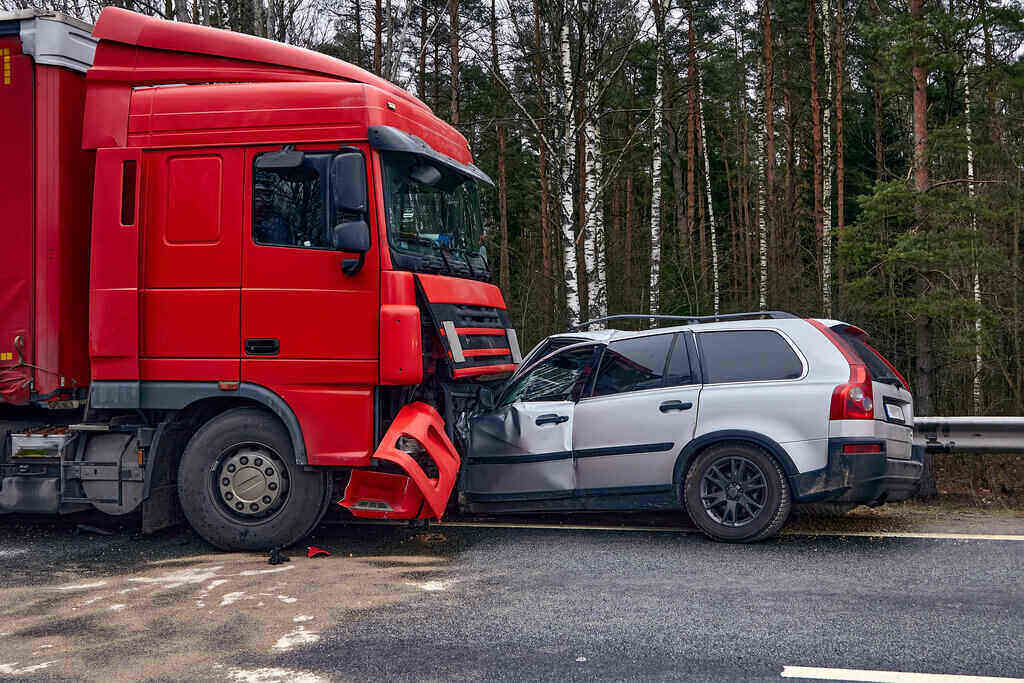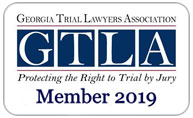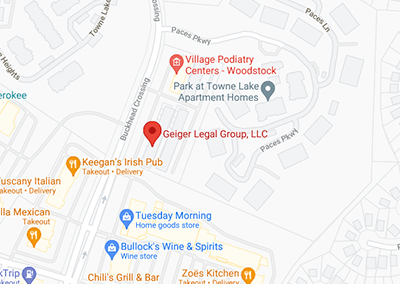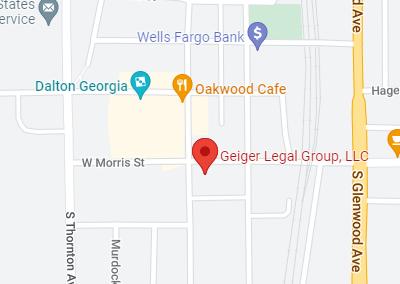Do You Have a Motorcycle Accident Claim?
Types of Truck Accidents
When a large truck collides with a smaller vehicle, cyclist, or pedestrian, the chances are high that someone will sustain a serious injury. Some of the most common types of commercial truck accidents include:
- Wide-turn accidents — Truck drivers must exercise caution before turning because a semi-truck towing a trailer is much longer than the average passenger vehicle. This is especially true for right turns. To make sure a truck can navigate a right turn safely, the driver will often swing the rig slightly to the left. If the trucker isn’t watching carefully or another driver moves into the truck’s lane before the turn is complete, the big rig can crush anyone caught between the body of their vehicle and the edge of the road.
- Blind-spot accidents — Trucks have much larger blind spots compared to other vehicles. These blind spots, nicknamed the “No Zones,” are located on all four sides of the truck. Truck drivers who fail to check their blind spots carefully before merging, braking, changing lanes, or backing up can hit other vehicles in their paths.
- Jackknife accidents — A jackknife crash occurs when a large truck tries to slow down quickly, but the trailer keeps moving forward because of the truck’s momentum. This can cause the trailer to swing wide to one side of the truck as it pivots on the trailer hitch. In turn, this can lead to an accident if the trailer hits something in its path.
- Tire blowouts — If one or more of a truck’s tires fails without warning, the driver could lose control of the vehicle. The tractor-trailer might start to drift out of its lane, or the trailer could begin to swing back and forth as the driver is trying to regain control. In either case, blowouts can cause trucks to collide with smaller vehicles and objects around them.
- Rollover accidents — A truck’s cargo must be appropriately placed and secured within the trailer for proper stability and balance. If the freight isn’t loaded correctly, it can change the truck’s center of gravity and increase the likelihood of a rollover accident. Likewise, cargo that comes loose and shifts in a truck’s trailer can also cause a truck to overturn, especially when navigating sharp turns.
- Spillage accidents — Rollover accidents aren’t the only kind of crash that can happen because of loose cargo. Unsecured cargo may fly off the truck’s bed or out of the trailer and strike other vehicles. It could also create a chain-reaction collision as drivers swerve to avoid oncoming cargo.
- Rear-end accidents — A semi-truck with a fully loaded trailer can weigh 20 to 30 times as much as a passenger car. For this reason, trucks take much longer to slow down and stop. Truckers who follow too closely or are distracted can easily crash into the vehicle ahead of them.
- Head-on accidents — Head-on collisions involving large trucks are relatively rare, but they often cause catastrophic injuries when they happen. These types of accidents often involve impaired, distracted, or tired drivers.
- Override and underride accidents — Some of the most harmful truck accidents occur when another vehicle becomes lodged under the truck’s body. Override crashes often happen when a truck rear-ends a vehicle because the trucker is following too closely. Underride collisions occur when another driver tailgates the truck and gets stuck.
- Side-impact or sideswipe accidents — Truckers who don’t check their blind spots before turning, merging, or changing lanes can collide with other vehicles traveling next to them.
- T-bone accidents — A T-bone truck accident happens when a truck strikes another vehicle at a perpendicular angle. These crashes get their name from the “T” shape formed when the vehicles collide. Drivers and passengers involved in a T-bone accident with a truck frequently suffer severe injuries because most cars offer less protection from a side impact.
No matter what type of crash caused your injuries, our Colorado truck accident lawyers can help. Truck accident lawsuits can result in substantial verdicts and settlements for victims.
Common Causes of Truck Accidents
In many cases, truck accidents result from truck driver error or another party’s negligence. Sometimes, more than one party is to blame.
The most common causes of truck accidents in Denver include:
- Impaired driving — Intoxicated drivers have a more challenging time controlling their vehicle and recognizing hazards around them, making a serious crash much more likely.
- Drowsy driving — Because truckers work long hours and frequently have irregular schedules, they run the risk of experiencing severe fatigue behind the wheel. To minimize the chance of accidents caused by driver fatigue, the Federal Motor Carrier Safety Administration (FMCSA) adopted trucking Hours of Service regulations mandating how long truck drivers can remain on the road before taking a break. Drivers who ignore these rules and cause a fatigue-related crash can be held liable through a personal injury claim.
- Distracted driving — It’s hard to control a tractor-trailer under normal conditions. But when a truck driver is distracted, the risk of a commercial truck accident increases exponentially. That’s why FMCSA banned and restricted texting and mobile phone use while CMV drivers are on duty.
- Mechanical defects — The sheer size of large trucks puts a lot of wear and tear on their parts. If a truck’s tires, brakes, steering, or other vital systems malfunction due to a defect, the truck driver could lose control, leading to a crash.
- Poor maintenance — Many semi-truck accidents result from penny-pinching trucking companies who fail to perform routine maintenance on their commercial trucks.
- Speeding and aggressive driving — Speeding is dangerous for any vehicle, but an 80,000-pound truck that barrels into another car is capable of causing fatal harm to anyone in its path.
Determining liability after a commercial truck crash is critical when seeking the financial recovery that victims deserve. If you’ve been hurt, an experienced truck accident lawyer can review the facts of the case to ensure all liable parties are held accountable.
Dangerous Roads and Intersections in Denver, CO
According to a recent news report, some of the most dangerous intersections in the Denver region include:
- West Alameda Avenue and South Santa Fe Drive
- North Downing Street and East Colfax Avenue
- West Colfax Avenue and Speer Boulevard
- North Quebec Street and East 36th Avenue
- South Colorado Boulevard and East Alameda Avenue
- North Speer Boulevard and Auraria Parkway
- North Central Park Boulevard and East MLK Boulevard
- West Alameda Avenue and Southern Federal Boulevard
- West Colfax Avenue and North Kalamath Street
- West Evans Avenue and South Federal Boulevard
Common Truck Accident Injuries
Commercial truck accidents remain the cause of the most severe traffic accident injuries. Examples of serious and potentially fatal injuries include:
- Broken bones
- Cuts and lacerations
- Soft-tissue injuries
- Neck injuries, including whiplash
- Traumatic brain injuries
- Head and facial injuries
- Back and spinal cord injuries
- Internal organ damage
- Amputation
- Burns
- Wrongful death
Compensation Available in Semi-Truck Accident Claims
Multiple parties could share liability for a truck accident. In addition to the truck driver, the trucking company, the truck’s manufacturer, or maintenance and cargo workers could all have played some role in the accident if they weren’t careful. But by filing an insurance claim or personal injury lawsuit, you can potentially recover semi-truck accident compensation for:
- Medical bills
- Rehabilitation
- Missed wages
- Reduced future earning potential
- Property damage
- Pain and suffering
- Emotional distress
At Geiger Legal Group, LLC, our truck accident attorneys know how important it is to obtain full and fair compensation for you. You can count on us to build a truck accident claim that stands up to disputes from trucking and insurance companies.
FMCSA Trucking Regulations
The FMCSA governs all aspects of the trucking industry. Several important trucking regulations often play a role in truck accident claims. These include:
- Hours of service rules — Dictate how long drivers can stay on the road before taking rest breaks. Truck drivers could be liable for an accident if they violate these regulations.
- Cell phone use — FMCSA rules state that truck drivers are forbidden from using or even holding a cellphone while driving unless they have a hands-free device they can use.
- Alcohol use — While most states’ maximum legal blood alcohol concentration (BAC) for passenger drivers is 0.08, FMCSA regulations lower the legal limit for all truck drivers by half to 0.04.
In addition to FMCSA regulations, truck drivers must also obey Colorado trucking laws. It’s crucial to hire a skilled attorney who understands these laws for your truck accident case.
Contact Our Experienced Truck Accident Attorneys in Denver, CO Today
Don’t let the negligence of a truck driver, their employer, or another entity cost you your health and livelihood. In the aftermath of a crash involving an 18-wheeler or another large truck, turn to a legal team with the right skills and resources to help you get justice. Contact Geiger Legal Group, LLC today for a free consultation with an experienced Colorado truck accident lawyer.
















